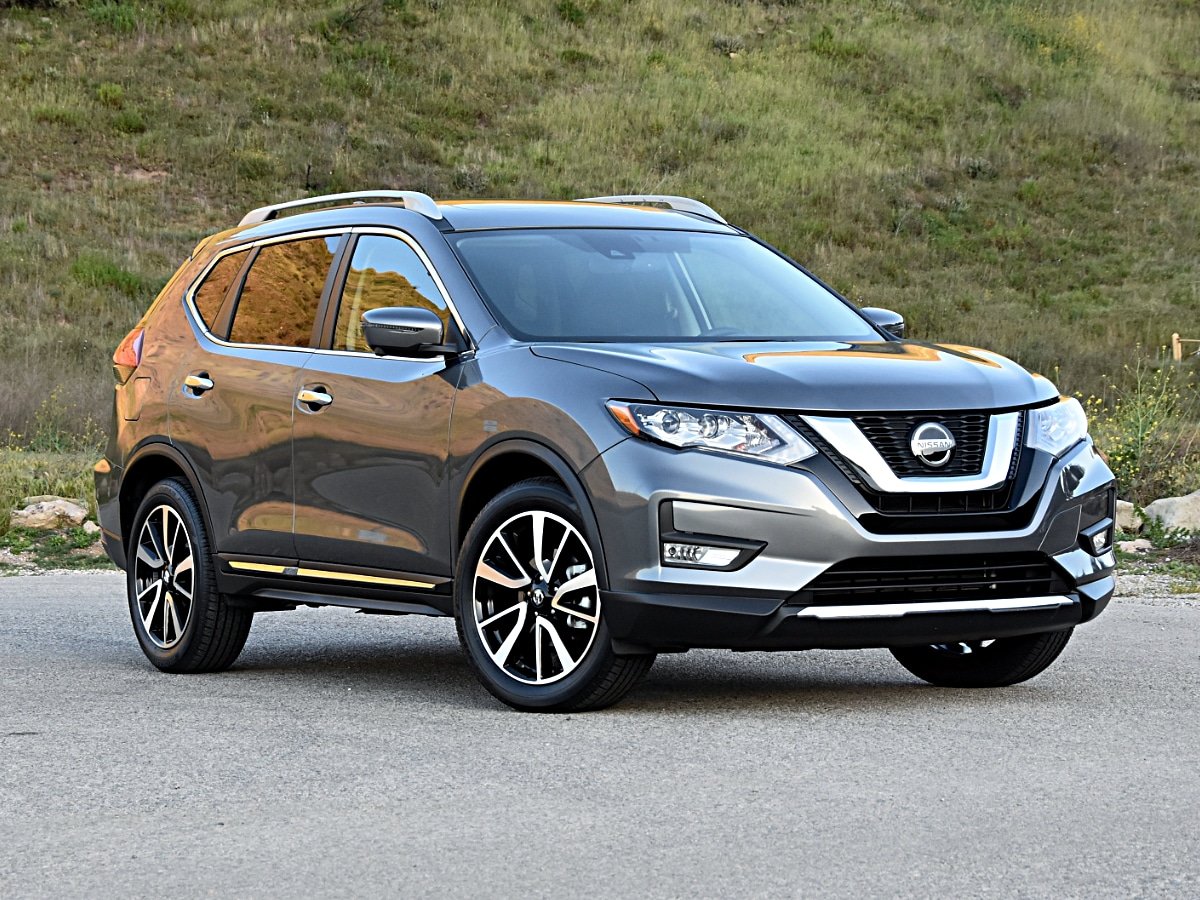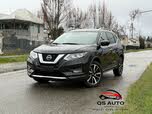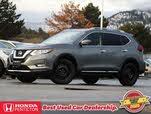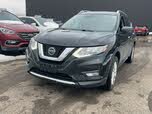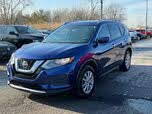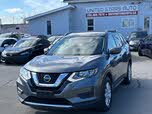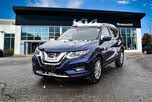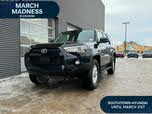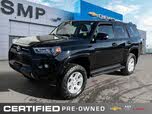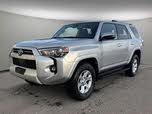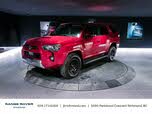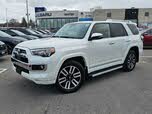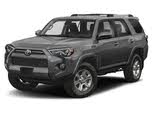2020 Nissan Rogue vs 2021 Toyota 4Runner
Overview | ||
MSRP | $25,490 | $36,765 |
Average price | $21,271 | $53,062 |
Listings | ||
Ratings & Reviews | ||
User reviews | ||
Expert reviews | 6.0 out of 10Read full review | 6.2 out of 10Read full review |
Pros & cons | Pros
| |
Summary | By 2020 the Nissan Rogue was looking somewhat dated, having been on sale since 2014. Is it still worth considering, or are you better off looking at the newer model instead? The answers to these questions depend on who you are and what you value in a compact crossover SUV. | Despite its design age, poor fuel efficiency, rough ride, iffy handling, and marginal safety ratings, the current-generation Toyota 4Runner remains a popular choice in a midsize SUV. Why? Its reputation for reliability and resale value, coupled with its undeniable utility, rugged image, and go-anywhere and do-anything capability, are the selling points. And if that's why you want a 2021 Toyota 4Runner, it won't disappoint you as long as you accept its shortcomings. |
Video | No video found | No video found |
Popular Features & Specs | ||
Engine | 2.5L 170 hp I4 | 4.0L 270 hp V6 |
Drive Train | FWD | 4X2 |
Seating Capacity | 5 | 7 |
Horsepower | 170 hp @ 6000 rpm | 270 hp @ 5600 rpm |
MPG City | 26 | 16 |
MPG Highway | 33 | 19 |
Engine | ||
Engine Name | 2.5L 170 hp I4 | 4.0L 270 hp V6 |
Torque | 175 lb-ft @ 4400 rpm | 278 lb-ft @ 4400 rpm |
Horsepower | 170 hp @ 6000 rpm | 270 hp @ 5600 rpm |
Drivetrain | FWD | 4X2 |
Fuel Economy | ||
MPG City | 26 | 16 |
MPG Highway | 33 | 19 |
Interior | ||
Seating Capacity | 5 | 7 |
Safety | ||
Front Crash Overall | 4 | 4 |
Side Crash Overall | 5 | 5 |
Dimensions & Capacity | ||
Cargo Space | 39.3 cu ft | 47.2 cu ft |
Curb Weight | 3463 lbs | 4400 lbs |
Height | 66.3 in | 71.5 in |
Length | 184.5 in | 190.2 in |
Width | 72.4 in | 75.8 in |
Wheelbase | 106.5 in | 109.8 in |
Maximum Payload | 1127 lbs | 1700 lbs |
Number of doors | 4 | 4 |
Maximum Towing Capacity | 5000 lbs | |
Standard Towing Capacity | 5000 lbs | |
The 2020 Nissan Rogue, available in S, SV, and SL Platinum trims, offered a straightforward design with a single engine and transmission choice, and options for front-wheel or all-wheel drive. The SL Platinum trim, priced at an estimated $37,998 CAD, featured a bold V-Motion grille and 19-inch aluminum alloy wheels, giving it an appealing look despite its age. However, the interior design felt dated, with older styling themes and unimpressive plastic surfaces. The padded centre console sides were a thoughtful touch for driver comfort.
In contrast, the 2021 Toyota 4Runner, despite its 12-year-old design, maintained a timeless and utilitarian appearance. Its two-box body with flared fenders and trapezoidal wheel arches provided balanced proportions and undeniable utility. The 4Runner's design was more about function than form, with a rugged look that aged well. The Trail and SR5 trims, along with various packages, offered a range of features, with prices starting at $46,200 CAD. The interior was practical, with hard plastic surfaces that suited its off-road mission.
The 2020 Nissan Rogue was equipped with a 2.5-litre four-cylinder engine producing 170 horsepower and 175 lb-ft of torque, paired with a continuously variable transmission (CVT). Weighing 1,664 kilograms, the Rogue's powertrain was adequate but not sporty, even with a Sport driving mode. The CVT managed power well, but the Rogue struggled with acceleration, especially on highways or steep grades. Fuel efficiency was disappointing, with a tested consumption of 9.4 L/100 km, higher than the expected 8.2 L/100 km. The Rogue's ride and handling were improved by Intelligent Trace Control and Active Ride Control, but it lacked driving excitement.
The 2021 Toyota 4Runner excelled off-road, thanks to its A-Trac traction control system and optional TRD Off-Road, Venture, or TRD Pro packages, which added features like a locking rear differential and Crawl Control. Powered by a 4.0-litre V6 engine with 270 horsepower and 278 lb-ft of torque, the 4Runner had a five-speed automatic transmission and a maximum towing capacity of 2,268 kilograms. On-road, the 4Runner felt slow and clunky, with heavy steering and brakes. Its truck-like characteristics were part of its charm, but fuel consumption was high, averaging 14.0 L/100 km.
The 2020 Nissan Rogue's interior was a mixed bag. The front seats, though equipped with Quick Comfort heating, were undersized and challenging for taller drivers to adjust comfortably. The rear seats, however, offered excellent thigh support, legroom, and visibility, enhanced by a panoramic glass moonroof. In-cabin storage was limited, but the cargo area was spacious, with 1,112 litres of space and a Divide-n-Hide cargo management system.
The 2021 Toyota 4Runner's high ground clearance could be a challenge for shorter passengers, but once inside, the seats were supportive, with ample legroom and visibility. The rear seats had air conditioning vents and USB ports, and the vehicle offered an open-air feel with its moonroof and power windows. Cargo space was generous, with up to 1,337 litres behind the rear seats and 2,540 litres with them folded down, plus a large roof rack for additional storage.
The 2020 Nissan Rogue's infotainment system included Bluetooth, Apple CarPlay, Android Auto, and SiriusXM, with upgrades like navigation and a Bose audio system. NissanConnect Services offered remote access and safety features, but the 7-inch touchscreen was outdated, with slow response times and subpar voice recognition.
The 2021 Toyota 4Runner's Trail grade had basic technology, with an 8-inch touchscreen, Bluetooth, Apple CarPlay, Android Auto, and SiriusXM. The system was user-friendly, with physical buttons and knobs for easy operation, even with gloves. Upgraded packages added dynamic navigation and concierge services, enhancing the infotainment experience.
The 2020 Nissan Rogue featured the Safety Shield 360 suite, including forward-collision warning, automatic emergency braking, and blind-spot monitoring. Additional options included ProPilot Assist and a surround-view camera. However, its safety ratings were not stellar, with a 4-star overall rating from NHTSA and issues with frontal-impact protection.
The 2021 Toyota 4Runner came with Toyota Safety Sense P, offering adaptive cruise control, forward-collision warning, and lane departure warning. However, it lacked blind-spot monitoring and rear cross-traffic warning. Its safety ratings reflected its age, with a three-star rollover resistance rating from NHTSA and marginal frontal-impact protection from IIHS.
CarGurus highlights
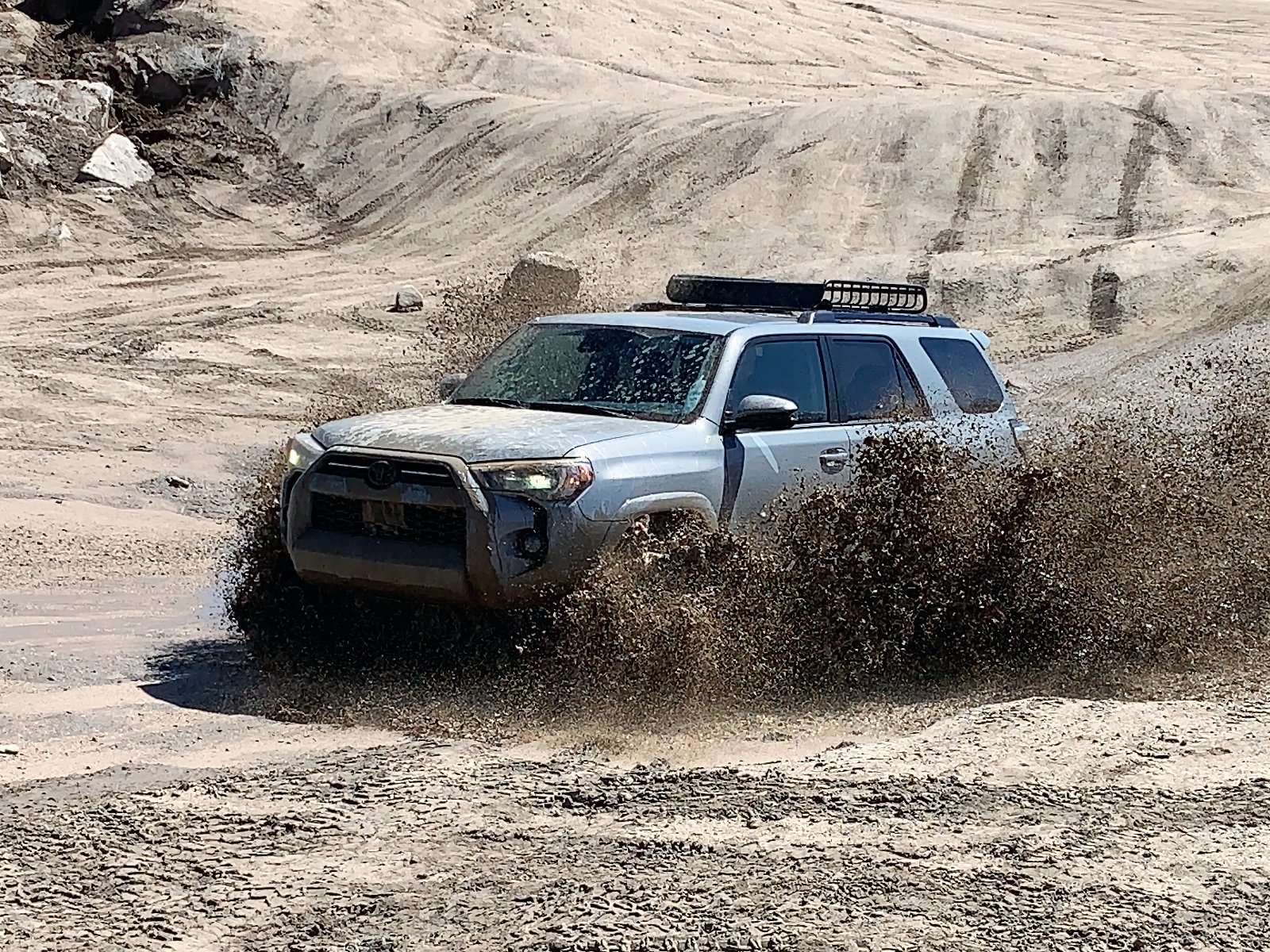
According to CarGurus experts, the overall rating for the 2020 Nissan Rogue is 6.0 out of 10, while the 2021 Toyota 4Runner scores 6.2 out of 10. Based on these ratings, the 2021 Toyota 4Runner is the recommended choice for those seeking a durable, off-road-ready SUV with ample interior space and a rugged design.
Choose the 2020 Nissan Rogue if:
Shop Now- You prioritize a more modern infotainment system with features like Apple CarPlay and Android Auto.
- You need a spacious cargo area with a versatile cargo management system.
- You prefer a vehicle with a more car-like driving experience and better on-road comfort.
Choose the 2021 Toyota 4Runner if:
Shop Now- You require a rugged, off-road-capable SUV with features like A-Trac and optional TRD packages.
- You value a spacious interior with ample cargo capacity for outdoor adventures.
- You appreciate a vehicle with a timeless, utilitarian design and truck-like characteristics.

By: CarGurus + AI
At CarGurus, our team of experienced automotive writers remain at the heart of our content operation, conducting hands-on car tests and writing insightful guides that are backed by years of industry experience. To complement this, we are harnessing AI to make our content offering more diverse and more helpful to shoppers than ever. To achieve this, our AI systems are based exclusively on CarGurus content, ratings and data, so that what we produce is both unique to CarGurus, and uniquely helpful to car shoppers.
